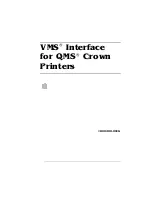
Chapter 1. Steps to Get You Started
3
space. Choosing both GNOME and KDE requires at least 1.3 GB of free disk space.
Custom
A Custom installation requires for a minimal installation (without the Server packages) and at
least 3.2 GB of free space if every package is selected.
If you are not sure that you meet these conditions, or if you want to know how to create free disk
space for your Red Hat Enterprise Linux ES installation, please refer to Appendix D.
1.4. Can You Install Using the CD-ROM?
There are several methods that can be used to install Red Hat Enterprise Linux ES. This manual
focuses on installing from the CD-ROM. For instructions on alternative installation methods, refer to
Chapter 4.
Installing from a CD-ROM requires that you have purchased a Red Hat Enterprise Linux ES 2.1
product, or you have a Red Hat Enterprise Linux ES CD-ROM, and you have a CD-ROM drive. Most
new computers will allow booting from the CD-ROM. If your system will support booting from the
CD-ROM, it is an easy way to begin a local CD-ROM installation.
Your BIOS may need to be changed to allow booting from your CD-ROM drive. For more information
about editing your BIOS, see Section 3.2.1.
1.4.1. Alternative Boot Methods
If you cannot boot from the CD-ROM drive, the following alternative boot method is available:
Local Boot Disk
If you need a
local boot disk
4
, you must create it. The local boot disk image file,
boot.img
,
is located in the
images
directory on your Red Hat Enterprise Linux ES CD-ROM. Refer to
Section 1.4.2, for more information on making a boot disk.
Note
USB Floppies
— You can also boot the Red Hat Enterprise Linux ES installation program using a
USB floppy as a boot disk (if your system supports booting from a USB floppy).
Note
Although it is not required to boot your installation, you may occasionally find that a driver disk is
needed to continue with the installation. Appendix E explains why a driver disk may be necessary for
your installation, and how to obtain one if needed.
4. A boot disk is a diskette you create during an installation that can later be used to boot the operating system.
Normally, your computer boots from a hard disk, but if the hard disk is damaged, you can boot the computer from
a bootable diskette.
Summary of Contents for LINUX ES 2.1 -
Page 1: ...Red Hat Enterprise Linux ES 2 1 Red Hat Enterprise Linux ES Installation Guide...
Page 10: ......
Page 18: ...8 Chapter 1 Steps to Get You Started...
Page 72: ......
Page 74: ...64 Appendix A Removing Red Hat Enterprise Linux ES...
Page 86: ...76 Appendix C Troubleshooting Your Installation of Red Hat Enterprise Linux ES...
Page 102: ...92 Appendix D An Introduction to Disk Partitions...
Page 110: ......














































